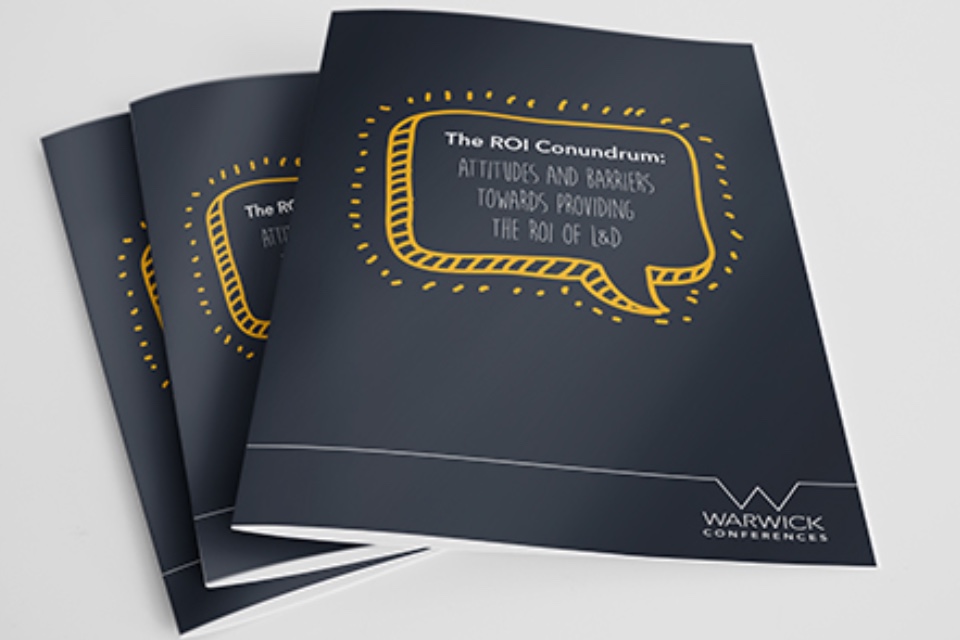Learning and development (L&D) has an important role to play in the long-term business recovery plans, but evaluation processes must be reviewed, according to a new report from Warwick Conferences.
According to the survey of 200 directors across finance, HR and L&D by Warwick Conferences, which was undertaken before the impact of Covid-19 was known, investment in L&D programmes was set to increase among many organisations in the UK.
While the need for L&D – once businesses are up and running again – is undisputable, the attention for training programme managers must turn to the evaluation processes. That’s after the report found that almost half of L&D directors were concerned that calculating the return on investment (ROI) of training programmes could lead to an enforced programme change.
Prompting concerns of complacency, the report – The ROI Conundrum – also found that more than two-thirds confirmed that they don’t send participants a feedback survey within a week of the training programme commencing.
However, other methods, such as setting KPIs against the training objectives and monitoring new skills in performance reviews, were preferred. In addition, almost all respondents claimed that at least one action is taken by managers following a programme.
Following the growing business uncertainty faced across the globe, it is expected that any budgets provided will come under more scrutiny than ever and a clearer ROI will be increasingly important.
The findings from Warwick Conferences’ report show clear inconsistencies when calculating the ROI of a training programme, with more than 90% saying there was at least one barrier to measuring ROI. Among those, complexity and lack of an accurate tool were high on the agenda.
Paul Bartlett, Director at Warwick Conferences, said: “It’s clear from this survey and report that L&D still holds significant importance to organisations across the UK. When businesses start to look to future-proofing, L&D will have an important role to play and if this is the case, it is likely that there will be more scrutiny on programmes.
“L&D planners must ensure they are equipped to prove the training programmes in place do deliver business impact, as it is likely that questions will start to be asked.”
The ROI Institute, which helps organisations across the world measure the success of projects and programmes to maximise their financial investments, has welcomed the report and has challenged the notion that lower investment leads to greater ROI impact.
Jack Phillips, who provides commentary within the report and is Chairman of the ROI Institute, comments: “It is great to see that there are positive attitudes towards the role of L&D within the wider business function in the UK. However, finance teams should not be deterred from L&D, especially if the main reason is to reduce cost. We have studied thousands of programmes, and we find that it is not unusual to find cheap programmes deliver a negative ROI, with greater business impact coming with more investment.
“The quality of the programme – both in the delivery and location – has a positive impact, according to our years of extensive research. L&D directors and programme managers need to ensure that, if they are receiving budgets, that they employ a proactive approach to calculating ROI and proving the value that training brings.”
As a result of the findings, Warwick Conferences has teamed up with the ROI Institute to deliver a first-of-its-kinds tool to support the L&D industry.
To find out more information, and to receive a copy of the report, please visit www.warwickconferences.com/roireport.















